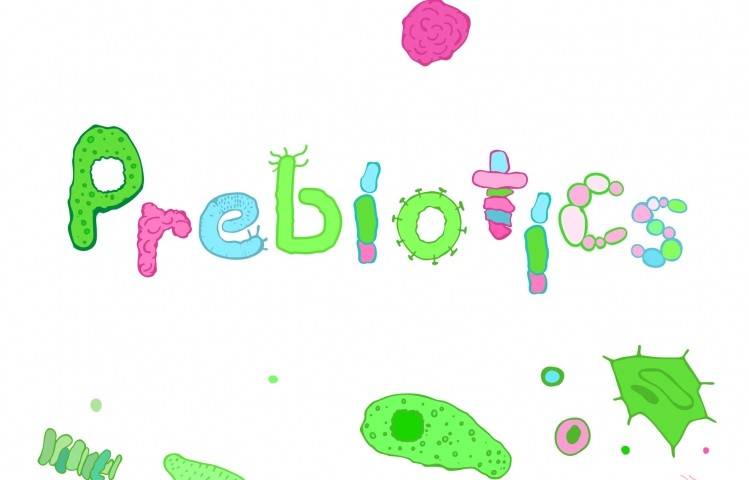‘Intriguing’: Prebiotics may protect against detrimental effects of early life stress

And that’s exactly what a new study found: Supplementing the diets of young rats separated from their mothers with prebiotics and/or milk fat globule membrane (MFGM)
Data published in the European Journal of Neuroscience indicated that the dietary interventions led to beneficial changes in the brain linked to coping mechanisms of the young rats.
The researchers – affiliated with University College Cork (Ireland), Mead Johnson in the US and the Netherlands, and Ireland’s Teagasc Food Research Centre – also reported that MFGM and prebiotic supplementation led to cognitive improvements, specifically spatial learning, and perhaps some measures of memory.
“These results have translational connotations as clinical studies have shown that stress in early life in children is associated with altered stress signaling, increased pain responses and cognitive deficits,” wrote the researchers. “Moreover, the impact of adverse events in early life on the gut microbiota may be involved in the manifestation of the above deficits.
“Here, we have shown that the most significant effect of the dietary interventions in the mechanistic analysis was indeed changes in the gut microbiota composition and interestingly these changes were different albeit not directly correlated to exposure to early life stress.
“Hence, we speculate that the ingredients investigated can influence behavior through changes in the gut microbiota and to a greater extent in the maternal separation, early life stress model.”
“A very well conducted and reported study”
Glenn Gibson, Professor of Food Microbiology and head of Food Microbial Sciences at the University of Reading in the UK, and a pioneer and world-renowned expert in prebiotics, described the results as “intriguing”.
Prof Gibson told NutraIngredients-USA: “This is a very well conducted and reported study that uses an animal model to assess the influence of gut-brain axis on early life stress. These were partly alleviated by using a blend of prebiotics that exerted positive effects upon the gut microbiome.
“The research again confirms the important link between gut microbes and cognitive function. However, it goes further than most studies in the field by modulating the situation.
“These are very intriguing results and I look forward to seeing the influences in human studies.”
Prebiotics are defined as “a substrate that is selectively utilized by host microorganisms conferring a health benefit” (ISAPP, published in Nature Reviews Gastroenterology & Hepatology, 2017, Vol 14, pp. 491–502)
Study details
UCC’s Siobhain O’Mahony, Karen-Anne McVey Neufeld and their co-workers studied the impact of MFGM and/or prebiotic (a blend of polydextrose/galactooligosaccharide) in rats from 21 days of age. The young animals were either separated from their mothers for three hours or left undisturbed with their mothers.
Results showed that the stress of separation in rats not fed the MFGM or prebiotics led to visceral hypersensitivity (internal pain), spatial learning and memory declines, and changes in the gut microbiota.
However, supplementation with MFGM ameliorated the induced visceral hypersensitivity, and the effect was greater when MFGM was combined with the prebiotics.
In addition, both MFGM and prebiotics alone or in combination improved spatial learning and memory.
The researchers also found that the prebiotics with or without MFGM restored the HPA (hypothalamic pituitary adrenal) axis response, “which can be beneficial in times where coping mechanisms to stressful events are required”.
The combination of MFGM and the prebiotic blend was also found to influence microbial abundance in the gut at the family and genus level. The combination also influenced beta diversity levels, they said.
“Here we show that early life stress-induced alterations in behavior can be attenuated by supplementing the diet with either MFGM alone or in combination with a prebiotic blend,” wrote the researchers. “Notably, this is the first study to show that MFGM consumption results in a significant reduction of the early life stress-induced visceral hypersensitivity. While previous studies have shown that dietary supplementation with probiotics and prebiotics are effective in the reduction of visceral sensitivity the impact of MFGM has not been shown before.”
Source: European Journal of Neuroscience
Published online ahead of print, doi: 10.1111/ejn.14514
“The Enduring Effects of Early Life Stress on the Microbiota‐Gut‐Brain Axis are Buffered by Dietary Supplementation with Milk Fat Globule Membrane and a Prebiotic Blend”
Authors: S.M. O'Mahony et al.
















